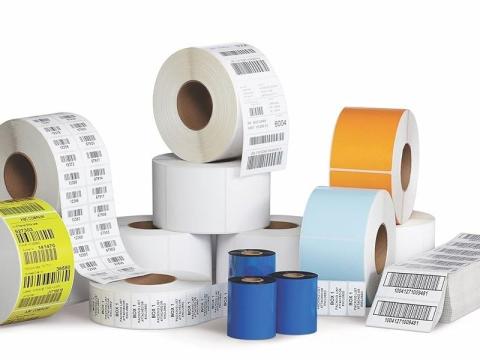
Label base paper, as the basic material for the production of label paper, refers to uncoated treated or unattached adhesive special paper, which constitutes the core component of label paper. The choice of base paper is directly related to the quality and performance of the final label product, including its printing effect, durability and fit. Label stock typically requires good flatness, strength, uniform ink absorption, and appropriate surface roughness to ensure clear printing and easy adhesion.
Features
- good flatness and uniformity: ensure that the paper surface is flat during the printing process to avoid damage to the printhead, and to ensure the clarity and consistency of the printed image.
- suitable strength and toughness: to ensure that in the processing, printing, transport and use of the process is not easy to break, especially for automatic labelling machine applications is more important.
- suitable ink absorption and surface treatment: according to the different printing technologies (such as thermal, laser, inkjet), the raw paper needs to have the appropriate ink absorption and fast drying or heat resistance characteristics, in order to maintain the durability of text and images.
- good adhesion basis: although the raw paper itself does not contain adhesive, but its surface treatment needs to consider the adhesion of the subsequent adhesive to ensure that the label can be firmly affixed.
- Wide range of adaptability: able to adapt to a variety of post-processing treatment, such as coating, slitting, punching, etc., to meet the needs of different application scenarios.
Applications
- Packaging industry: Widely used in food, beverage, cosmetics, pharmaceuticals and other types of commodities, such as external packaging labels, the raw paper is required to have a good appearance and compatibility, to meet the needs of different packaging material lamination.
- logistics and warehousing: in logistics labels, container labels, pallet labels and other applications, the raw paper needs to have strong abrasion resistance and a certain degree of environmental adaptability, to ensure the readability of information in the logistics process.
- retail: for price labels, promotional labels, inventory management labels, etc., emphasising the cost-benefit ratio and printing efficiency, the choice of raw paper needs to take into account the economy and functionality.
- industrial labelling: in the field of electronics, automotive, machinery manufacturing, etc., the base paper needs to have special properties such as oil resistance, chemical resistance, high temperature resistance, etc., to meet the requirements of labelling in complex industrial environments.
- 5 office and education: for document labels, index labels, etc., focusing on ease of use and environmental protection, the choice of raw paper tends to be thin and light, easy to write and print the type.
- medical and health: in medical labels, laboratory sample labels and other applications, the raw paper needs to meet strict health standards, and sometimes need to have a specific sterilisation compatibility.




